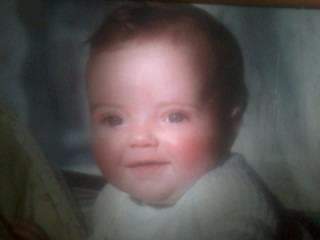SNAPSHOT
The day after my Grandmother died we three
children arrived with my Father to my Mothers childhood home. I was curious to
see how grief would have affected her, curious even then about how people cope
with loss and devastation on a grand scale, and noticed that she seemed harried
and not quite herself, greeting us at the front door (which was seldom used) in
a distracted manner, missing my cheek as I stood on tiptoe for a kiss. The smell of the laburnum hedge which we
children all loved to shred much to my Uncle Olivers consternation, was at its
strongest in the late August heat and the trains that hurtled through the
gardens at the back (and on whose tracks my “senile” Grandfather had been found
wandering in his pyjamas) evoked a note of normality that was strangely absent
from the house. The relations had assembled en masse and people from all over
had called in - Rossmore, Killeshin, The Hill, Castledermot, Pollerton, Tullow
and Gowran. A parade of characters and personalities and newsy neighbours had
taken up residence in the front room and were holding court over ham sandwiches
and whiskey. There was a smell of cooking in the air and spent matches and
scuts of cigarettes on saucers on the mantlepiece beside a picturesque blue
ashtray that was enscribed “En Fumant pensez au Moi !”
It would be years before I would know
enough French to translate it. I was still quite a small child.
“God, an’
I’m sorry for your loss, Missus” said Blind Bill from Castledermot.
The house was full with the remaining 10
children and their progeny. The cousins were running wild, daring each other to
drain the dead men in the pantry and sneaking sips out of glasses and bottles.
I am sure there were surreptitious pulls off fags happening out on the back step,
especially with the English cousin with the long hair I had a secret crush on.
My brother may or may not have been a willing participant, he has always been a
bit of a Jack the Lad, and up to all sorts of mischief. Undertakers had been
phoned and meat ordered and drink collected and now they were only waiting on
the last daughter to arrive from England.
Maura Eilis Nash nee Dooley - whom I called
“Emmy” after her initials - was a trend-setter and girl about town in London.
Think “Doctor in the House” with Dirk
Bogarde and you pretty much sum it up. She was a slender Irish Cailin with huge
blue eyes married to a British Doctor, who had served in WW2 as chief medical
officer in Her Majesty’s Navy. They met when she nursed him in a Sanatorium as
he recovered from TB. Their story is a fascinating one with a twist Hollywood
couldn’t make up. Someday.
Emmy skidded from arrivals at Dublin
Airport into the back of her brothers car, applying her make-up on the way
down, and insisted on being brought to the club for a stiffener before she
could even contemplate viewing her
Mother in Carpenters Funeral Home. What she did there is unbelievable for the
time.
She took a photo.
In the days before camera phones, digital
cameras, and all the other palava she took a photo of her Mother in the coffin.
There was probably even a flash.
“Well” says my Uncle in the kitchen –
through his teeth as he lit a cigar while lifting his brandy balloon, and balanced
his Cromby on his shoulders “you won’t BELIEVE
what your one did below at the wake”
There are nights when I am with Siobhan and
I am taking photos of her while she is unaware or sleeping that this memory
will come back. I will wonder if I am crossing some invisible line drawn in the
sand, or worse, that I have gone so far beyond the line that I may as well keep
ploughing on through the dunes to see what lies over the ridge of the next. I
found that photo recently and saw for the first time the image that has been
captured of a Mothers face in Eternity for Eternity. I will also feel a link down
through the decades, an invisible gossamer thread that binds me to another
Dooley woman, and ALL the Dooley women, a woman who sometimes at my shoulder I
can hear whisper, “go on, tell it, tell it ALL!” Remember this.




Comments
Post a Comment